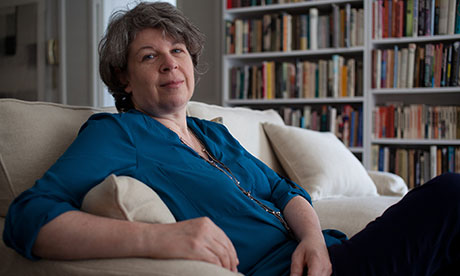
The Interestings is the US novelist Meg Wolitzer's 10th book, a long novel concerning the unfolding fates of a group of friends from teenagehood to middle age. Its narrative principles might perhaps be described as old-fashioned in that their aim is to tell the story – in a manner that confers a beneficent kind of coherence on the business of living – of several people over a considerable number of years; people who, moreover, are bound voluntarily by friendship rather than forcibly by blood. This is the kind of American novel that sees the world through a wide-angle lens, and try as it might to incorporate tragedy, it is essentially a cheerful enterprise with a guaranteed entertainment value. Wolitzer is a writer of prodigious energy and detail, with the knack for comic-satirical perceptions of character and culture that powers other long-running American narratives and perhaps finds its best expression in the numberless TV series that have become an imported staple of our own culture too, whose black wit is forever counterpoised against their ebullience and inexhaustibility.
And indeed, the creation of one such series – a Simpsons-like animation called Figland – is the centrepiece of Wolitzer's story of the group's trajectory into adulthood. Among the teenagers who gather one summer at a camp outside New York called "Spirit in the Woods" is Ethan Figman, "thick bodied, unusually ugly, his features appearing a little bit flattened, as if pressed against a mime's invisible glass wall". Ethan is already drawing comic strips in spiral-bound notebooks that transmute the suburban familial bleakness of his own childhood into a world of mordant humour. Where the other members of the group possess beauty, privilege or intellect in varying degrees, Ethan has the kind of talent most cherished in the American story: the kind that transforms negative into positive, that turns suffering into power. This power is already in evidence in the group's teenaged sojourn at Spirit in the Woods, a place founded on the values of the 1960s and now filled with children exhausted by their erstwhile-hippy parents' successes. For his new friends, Ethan's authenticity is regenerative: it gives them something to recognise, something around which to organise themselves, and it is in this constellation that they remain as the years progress.
If it is inevitable, in a narrative such as this one, that the characters seem to have been chosen and constructed as social "types", Wolitzer's casting is idiosyncratic enough: alongside Ethan there is a beautiful brother and sister, children of New York socialites, one evil and the other virtuous; there is Jonah, the gay, damaged son of a Joan Baez-style folk singer; and Cathy, a mature, good-looking, hard-bitten dancer who becomes in a sense the group's victim. Wolitzer is interested in the effect on children of their parents' lives, and particularly on the way in which the American religion of self-creation becomes a monstrous sort of selfishness that in the worship of fame and success goes uncriticised. Ethan, the child of – as it were – Homer Simpson, finds himself more intact than the offspring of cultivated New York households he now associates with: their friendship is founded on a shared interest in books, music and ideas, but where the others have been taught, Ethan has learned. If Wolitzer is a little guilty of sentimentalising this notion, she goes on to show Ethan become precisely the self-created American who buys into privilege; he himself turns into the parent that produces the passively cultured child.
Yet Ethan's counterpoint in the novel is not the fruit of a genteel or even an interesting upbringing, but someone from as desolate a home in its way as his own: a girl called Julie Jacobson who comes to Spirit in the Woods on a charitable scholarship and joins the group of friends – or so she feels – on much the same basis, out of an inexplicable kind of condescension. Julie – or "Jules", as she is rechristened by her fashionable new friends – is the "writer" of this narrative, a girl with neither beauty nor talent but a gift for observation that becomes, as her life progresses, a form of torment. She experiences what the others appear not to: private emotion, self-consciousness, tumults of embarrassment and envy and desire. When Ethan becomes impossibly rich and famous, it is Julie who covets his wealth and lifestyle; when Ethan marries the fey and lovely Ash, Julie marries a man she struggles not to criticise and disparage; when each of them has a daughter, Julie finds her own child noisy and boorish, while Ethan's is pretty and clever.
Julie works as a badly paid psychoanalyst, and later, she and her husband give up their jobs to attempt to run Spirit in the Woods, whose owners have now retired. This need to return is part of the function of Julie's character, for what she represents is the territory of neurosis and analysis that lies between the extremes of the American story; the middle ground from which responses to those extremes can be formulated.
The Interestings is not without moral rigour, particularly on the subjects of selfishness and envy: the descriptions of Jonah's suffering at the hands of his apparently well-intentioned and liberal but in fact vain and neglectful folk-singer mother are particularly unforgiving, and the whole subject of money is dealt with in an almost Jamesian spirit as Wolitzer draws a complex and skilful line between friendship and corruption. One might have wished for more of this kind of precision and less narrative bulk; but like the television satire at its centre, this is a story that avoids resolution, that has longevity as its goal and hopes to retain its audience by that same principle, "as if the world itself were an animated sequence of longing and envy and self-hatred and grandiosity and failure and success" that you can't stop watching, waiting to see what happens next.

